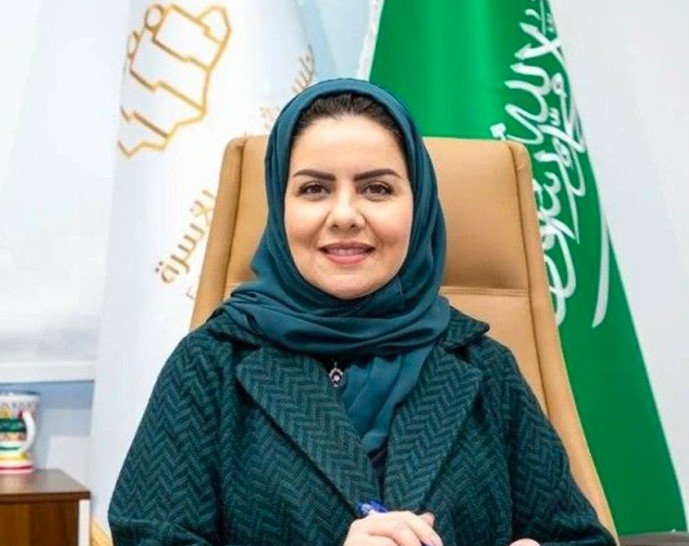Many of us wouldn’t be here today if classrooms were mixed,” H.E. Dr. Hala bint Mazyad Al-Tuwaijri says, challenging Western narratives on women’s rights in Saudi Arabia.
There’s a popular storyline in Western media that sees Saudi Arabia’s gender-segregated schools as a symbol of inequality. But for the Kingdom’s most senior human rights official, those separate classrooms weren’t a setback—they were a lifeline.
Speaking on stage at Fortune’s Most Powerful Women International Summit, H.E. Dr. Hala bint Mazyad Al-Tuwaijri didn’t mince words. Without gender segregation in education, she said, “many of the educated women you see today, including myself, would not be sitting here.” And that stark message carries weight—not only because of her title but because of what it took to get there.
School segregation helped girls get into school, not out of it
You might assume that keeping boys and girls in separate schools keeps girls out altogether. But Al-Tuwaijri says the reality on the ground is almost the opposite.
Families in deeply conservative parts of the Kingdom simply wouldn’t allow their daughters to attend coed institutions, she said. The compromise? Build a space where girls could learn without crossing social red lines.
“This is the only way many of us could go to school,” she said plainly. And by “us,” she means an entire generation of Saudi women—doctors, engineers, diplomats, and human rights officials.

That doesn’t mean the system is perfect or without flaws. But the picture isn’t as black and white as foreign critics often paint it. In fact, it may be the very structure that allowed Saudi Arabia’s slow-but-real transformation in women’s participation to take root.
A minister who studied identity, not law or politics
Al-Tuwaijri didn’t come to her current position through a legal background or public policy. Her academic journey took a different path: literature.
She earned all her degrees—BA, MA, and PhD—from King Saud University, focusing on English and American literature and drama. That might seem surprising for someone now in charge of a national human rights commission. But in her view, it makes perfect sense.
“For people who know a bit about studying literature, it’s not about reading stories,” she told the audience. “Behind every story, there is a culture, history, philosophy, ideas…”
That education taught her to see patterns—how identity is formed, how art reflects political climates, and how stories shape societies.
One small sentence summed it up: “My focus has always been on the issue of identity.”
She says context is everything—and often overlooked
Western headlines often put Saudi policies under a harsh spotlight. Sometimes that’s warranted. But Al-Tuwaijri says too often, they miss the full picture.
She pointed out that while gender segregation may sound restrictive to some, it functioned as a cultural workaround in Saudi Arabia—a practical way to educate girls within conservative norms.
Critics from abroad might call it a band-aid solution. But for many families, it was the only one they’d accept.
The pace of progress frustrates critics—but not all Saudi women
Yes, progress is slow. It’s layered, uneven, and sometimes full of contradictions.
Saudi Arabia’s Vision 2030, led by Crown Prince Mohammed bin Salman, has made lifting women’s participation in the economy and public life a cornerstone. And Al-Tuwaijri is one of its clearest beneficiaries.
• In 2022, she became president of the Human Rights Commission
• That same year, women’s unemployment dropped below 20% for the first time
• Female entrepreneurship also spiked, with over 300,000 new licenses issued to women-owned businesses
Still, not everyone sees these changes the same way. Foreign watchdogs argue the reforms are cosmetic. Some local women want faster change, more say, and deeper freedoms.
But Al-Tuwaijri thinks outsiders often underestimate the cultural balancing act.
“We’re not just fighting policies. We’re negotiating with tradition.”
If there’s a theme running through Al-Tuwaijri’s speech, it’s this: progress doesn’t always come the way you expect it to.
In Saudi Arabia, that means working within tradition instead of breaking it. It means getting buy-in from communities, not just mandates from ministers.
She described how girls’ education had to be presented in a way that wouldn’t provoke fear or resistance. “It’s not about winning arguments,” she said. “It’s about opening doors.”
Her own story mirrors that philosophy. She climbed the ranks not through protest but persistence—proving to skeptics that educated women could thrive without undermining tradition.
One sentence landed with particular force: “We couldn’t tear the house down, so we built more rooms.”
International image vs. local reality
As someone who has to juggle the expectations of both her own government and the international human rights community, Al-Tuwaijri knows she walks a tightrope.
She’s heard the criticism. She knows the UN reports, the watchdog warnings, the social media debates.
But she’s also seen the girls who, thanks to same-sex classrooms, became professionals.
“She’s not trying to sugarcoat the system,” one attendee whispered after her speech. “She’s saying it got us somewhere. And that counts.”
There’s still a long road ahead, and no one in Saudi Arabia’s leadership pretends otherwise. But when progress doesn’t fit neatly into a Western lens, Al-Tuwaijri believes it deserves a closer look—not just louder judgment.
